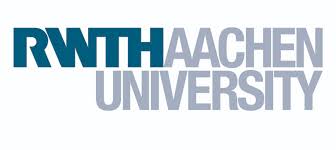Study Data Science in Germany: Top 58 Universities & 95 English Courses

Contents
Data science is a job that is becoming more popular, especially in startups and artificial intelligence. If you like working with data to find patterns and trends, studying data science in Germany could be a great choice for you.
Germany has a strong technology industry and invests a lot in data science. Its universities combine learning with hands-on experience, which can help you build a great career.
Let's take a closer look at why Germany is a great place to study!
Int. Study Programs
Universities
Cities
Why Study Data Science in Germany?
Choosing your study destination can be a big challenge. You want to find the right balance between getting a quality education and enjoying a vibrant social life. Here are some reasons why Germany can be a great place to get your data science degree:
Academic Excellence
- Top-Ranked Universities: Germany has some of the best universities, like the Technical University of Munich (TUM) and Heidelberg University. They are well-known for their data science programs.
- Cutting-Edge Research: These universities lead research in data science, artificial intelligence, and machine learning. Students get to work with the latest technology and discoveries in these fields.
Comprehensive Curriculum
- Theoretical and Practical Balance: German universities provide a solid mix of theory and hands-on learning. This helps students understand the concepts and also know how to apply them in real-world situations.
- Specializations: Students can also specialize in different areas of data science, like big data, business analytics, or AI. This lets them focus on what fits their career plans best.
Career Prospects
- High Demand for Data Scientists: Data scientists are in high demand in many fields, like finance, healthcare, automotive, and IT. Companies need skilled professionals to analyze data and make smart decisions.
- Post-Study Work Opportunities: Germany also has good visa policies for international students. After graduation, they can stay and work in the country, making it easier to start their careers.
International Programs
- English-Taught Courses: Many data science programs are available in English, making them accessible to international students.
- Diverse Student Community: Studying in Germany means joining a vibrant, multicultural community and enriching the learning experience through diverse perspectives.
Affordable Education and Living
- Low or No Tuition Fees: Many public universities in Germany have little to no tuition fees for international students. This makes studying there a budget-friendly way to get a high-quality education.
- Cost of Living: While living costs vary by city, Germany is generally more affordable than other Western countries. It offers a high standard of living at a reasonable cost.
Overview of Data Science Degrees in Germany
Germany provides a wide array of academic pathways for those interested in pursuing a career in data science. Below are the primary types of degrees available:
Bachelor’s Degree in Data Science (BSc in Data Science)
Data science bachelor's programs in Germany usually last three to four years. They cover important subjects like mathematics, statistics, computer programming, and data analysis. Students also learn about machine learning, databases, and big data technologies.Master’s Degree in Data Science (MSc in Data Science)
For students who want to learn more, a master's in data science in Germany takes about two years. It provides a deeper understanding of data science concepts and advanced skills. These programs often include specialized courses in artificial intelligence, data mining, and advanced analytics. Master's programs can be research-oriented or geared towards professional practice.Looking for the Top Master's Courses in Data Science in Germany?

PhD in Data Science
For individuals interested in academic or high-level research careers, pursuing a PhD is a viable option. Students who have completed an MSc in Data Science can consider PhD programs in data science, which can take three to five years. These allow students to explore cutting-edge research in data science, contributing new knowledge and innovations to the field.
Dual Degree Programs
Some universities offer dual degree programs that last four to five years. These let students study data science along with another subject, like business administration or engineering. This mix of skills gives them more career options and a wider range of knowledge.
Top Data Science Courses in English To Study in Germany
Best Universities in Germany For Data Science
Germany boasts several top universities known for their excellent data science programs, making it an attractive destination for international students seeking quality education in this field. Here are some of the best universities in Germany for data science:
Technical University of Munich (TUM)
- Renowned for its strong emphasis on research and innovation in data science and artificial intelligence.
- Offers comprehensive programs with a focus on practical applications and industry collaboration.
University of Mannheim
- Known for its Data Science program within the Department of Economics and the Mannheim Data Science Center.
- Offers interdisciplinary approaches and access to state-of-the-art research facilities.
Heidelberg University
- Offers a Master's program in Data and Computer Science through its Faculty of Mathematics and Computer Science.
- Emphasizes theoretical foundations and practical skills in data analysis and machine learning.
Ludwig Maximilian University of Munich (LMU)
- Offers a Master's program in Data Science and Artificial Intelligence, focusing on both theoretical and applied aspects of data science.
- Collaborates closely with industry partners and research institutions in Munich.
Karlsruhe Institute of Technology (KIT)
- Known for its strong reputation in computer science and engineering, offering specialized programs in Data Science.
- Emphasizes hands-on training and research opportunities in data analytics and machine learning.
These universities offer top-quality education and a welcoming environment for international students. Many programs are taught in English, making it easier to study. Students gain the knowledge, skills, and opportunities they need to succeed in the fast-growing field of data science.
Career Paths for Data Science Students in Germany
Graduates of data science programs have abundant career opportunities for finding data science jobs in Germany. They can apply their expertise in finance, healthcare, technology, and manufacturing to drive innovation and enhance decision-making processes. Here are some potential career paths that data science graduates can pursue:
Finance
- Financial Analysts: Use predictive models for investment decisions.
- Risk Managers: Mitigate financial risks using data insights.
Healthcare
- Bioinformatics Specialists: Improve patient outcomes through data-driven research.
- Health Data Scientists: Analyze healthcare data to inform decision-making.
Technology
- Machine Learning Engineers: Develop smart applications and autonomous systems.
- AI Specialists: Implement AI solutions for innovative tech projects.
Manufacturing
- Operations Analysts: Optimize efficiency and productivity through data analysis.
- Supply Chain Analysts: Enhance logistics and supply chain operations.
Startup Opportunities
Germany's dynamic startup ecosystem offers data science graduates opportunities to join innovative ventures or start their own companies. This environment fosters diverse projects, from creating new data-driven products to deploying AI solutions across sectors.
Future Outlook
As more companies rely on data to make decisions, job opportunities for data science graduates in Germany are growing. A master's in data science can lead to exciting careers with top companies like IBM, BMW Group, PwC, Siemens, Amazon, and Allianz.
Admissions and Application for Data Science Studies in Germany
Germany offers two main admission sessions for both Bachelor's and Master's programs: the Winter and Summer Semester. Here's a breakdown of each:
Winter Semester
- Starts: Typically in September or October.
- Application Deadlines: Usually between May to July.
- Mostly for: Bachelor's programs, though some Master's programs also admit students.
Summer Semester
- Starts: Around March or April.
- Application Deadlines: Generally from December to January.
- Available for: Master's programs, with some Bachelor's programs offering admissions.
General Requirements for International Students
- Bachelor's Programs: Require a recognized school leaving certificate. Our StudyBuddy can help you find university requirements for specific courses. Share your previous qualifications, and StudyBuddy will give you program recommendations that match your skills and interests.
- Master's Programs: Require a relevant undergraduate degree. Each program's requirements differ, and you can use the StudyBuddy Program Database to find more in-depth information about your preferred courses.
- English Proficiency: Demonstrated through tests like IELTS or TOEFL for English-taught programs.
- Additional Documents: CV, letters of motivation, and sometimes letters of recommendation.
- Financial Proof: Evidence of sufficient funds to cover living expenses in Germany.
- Program-Specific Requirements: Some universities may have specific prerequisites and additional documentation requirements.
Financial Aid to Study Data Science in Germany
For international students coming to study in Germany, financial aid options include:
University Scholarships
- German universities offer scholarships based on academic merit or financial need, covering tuition fees and living expenses.
Government Scholarships
- The German government, through organizations like DAAD, provides scholarships for international students, covering tuition, living costs, and more.
Company Sponsorships
- Many German companies offer sponsorships and grants, supporting students with financial aid, internships, or thesis collaborations. These opportunities make studying in Germany more accessible and affordable for international students seeking higher education in a diverse academic environment.
Working Student Jobs
- Germany takes special consideration of students by providing “working student” jobs that are available to students only. These jobs offer an excellent opportunity to learn and gain practical experience in your field of study and earn money to sustain yourself financially during your studies.
Helpful Tips for Students Coming To Germany
Here are some helpful tips for international students coming to Germany to study data science:
- Language Preparation: While many programs are in English, learning basic German can enhance your daily life and integration into German culture.
- Research Universities: Look for universities with strong data science programs and research opportunities that align with your career goals. The StudyBuddy Program Database can give you an overview of Germany's existing data science programs.
- Financial Planning: Calculate and budget for living expenses in Germany. Consider scholarships, part-time work options, and financial aid opportunities.
- Visa and Documentation: Make sure you have a valid student visa and all necessary documents, like your passport, admission letter, and proof of finances, before you travel to Germany.
- Accommodation: Start searching early for housing options, university dormitories, or private rentals, especially in popular student cities.
- Cultural Adjustment: Embrace the German culture and lifestyle. Attend local events, join student clubs, and explore your surroundings to adapt and make new friends.
- Health Insurance: Obtain health insurance coverage that is valid in Germany before your arrival. It's a mandatory requirement for all students, and Expatrio's Value Package can help you get health insurance smoothly.
These tips will help you adjust easily to studying in Germany and make the most of your data science education. Enjoy the journey and take advantage of all the opportunities!
FAQ
What are the language requirements to study Data Science in Germany?
Many master's programs in Data Science are offered in English, making them accessible to international students. Here's what you'll need for these programs:
- IELTS (International English Language Testing System)
- TOEFL (Test of English as a Foreign Language)
- Cambridge English Qualifications
If you are interested in studying Data Science courses in German, here are the language requirements you will need to get admission:
- TestDaF (Test Deutsch als Fremdsprache)
- DSH (Deutsche Sprachprüfung für den Hochschulzugang)
- Goethe-Zertifikat
What are the visa requirements for Data Science students?
If you're from the EU, EEA or Switzerland, you don't need a visa. But if you're from outside these regions, you'll need one. There are two types: the Student Applicant Visa for those who haven't been admitted to a university yet and the Student Visa for those who have.
To get your visa, first get accepted to a German university. Then make an appointment at your home country's German embassy or consulate. You'll need to prepare several documents: a completed visa application form, a valid passport, your university acceptance letter, proof of financial resources (such as a blocked account with approximately €11,904), proof of health insurance, academic records, a letter of motivation and proof of language proficiency.
Can international students work in Germany post-graduation?
At the end of your studies, you can apply for an 18-month Job Seeker Visa to look for a job that's a good fit for your qualifications. During this period, you can work in any job to support yourself while you search for a position related to your field of study.
You can then apply for either an EU Blue Card or a work permit once you've found a job that matches your qualifications. The EU Blue Card is a great option for high-skilled workers and offers benefits like a faster path to permanent residency. To qualify, you generally need a job offer with a minimum salary of around € 56,800 per year. If you don’t qualify for the Blue Card, you can apply for a regular residence permit for employment. This means you need to have a job offer that matches your degree.
After working in Germany for a certain amount of time (usually 33 months with an EU Blue Card or 21 months if you have good German language skills), you can apply for a permanent residence permit, which allows you to live and work in Germany indefinitely.
This might also be of interest to you

Master's in UX Design in Germany: Top 6 Programs in Germany
Germany is rapidly becoming a top destination for future UX designers who want to combine design skills with real-world experience. A Master’s in UX...

Master's in Public Policy in Germany: 14 Programs & Top 7 Universities
Public policy is about understanding how rules, laws, and decisions are made to help improve society. It looks at big questions like how to make...

Top 6 Universities & Programs: Master's in Renewable Energy in Germany
Germany is a global leader in clean energy, making it a top choice for students who want to make a difference. If you're passionate about solar,...

Master’s in Artificial Intelligence in Germany: 39 Best English-Taught AI Courses
With Germany emerging as a hub for innovation and advanced technology, pursuing a Master’s in Artificial Intelligence in Germany is a strategic move...

Master’s in Cybersecurity in Germany: Top 19 Programs & Universities
Germany has emerged as a leading destination for international students seeking advanced education in technology and digital security. With its...

Study Cognitive Science in Germany
Are you fascinated by how the human mind works and how we can build intelligent systems that mimic human thinking? If you're passionate about areas...

Study Aviation Management in Germany: Top 6 Universities & 11 Programs
Dreaming of a career in the aviation industry? Whether you're passionate about air traffic, airline operations, airport management, or aviation...

Study Applied Data Science in Germany: 95 Study Programs in English
Are you fascinated by data and its power to shape the future? Do you dream of making data-driven decisions in fields like healthcare, neuroscience,...






